
Cross-border Tax Talks
PwC
PwC specialists share insights and perspectives on key issues impacting the ever-changing tax landscape. Our podcasts aim to provide quick, easy and up-to-date tax developments to help you stay current and competitive in today's challenging business envir
- 41 minutes 30 secondsUS Update: the long-awaited PTEP regs
Doug McHoney (PwC’s International Tax Services Global Leader) is joined by Laura Williams, an International Tax Principal at PwC’s Washington National Tax Services office. Laura previously worked as the International Branch Chief at the IRS Office of Chief Counsel. Doug and Laura discuss the long awaited previously taxed earnings and profits (PTEP) proposed regulations. Together they walk through the core aspects of the PTEP regime, including PTEP accounting, increases and decreases to basis of stock and other property, foreign currency gain or loss, allocation of foreign tax credits, 'covered distributions’, US consolidated group rules, and the anti-avoidance rule. See our PwC Tax Insight for more details.
22 January 2025, 7:00 pm - 40 minutes 19 secondsGlobal tax policy: searching for stability and certainty
Doug McHoney (PwC’s International Tax Services Global Leader) is joined by Will Morris, PwC’s Global Tax Policy Leader and former Director of Global Tax Policy at General Electric to look ahead to potential global tax policy changes. Will enlightens Doug about the confluence of tax and tariffs, digital services taxes (DSTs), the importance of communicating with the C-suite, the fate of Pillar Two, how the undertaxed profits rule (UTPR) could change, the role of the UN and global tax, and the potential for a US legislation as a reaction to DSTs and the UTPR.
8 January 2025, 4:00 pm - 37 minutes 30 secondsAccounting for Pillar Two: More than a tax exercise
Doug McHoney (PwC’s International Tax Services Global Leader) is joined by Andy Wiggins, PwC Partner based in the United Kingdom and PwC’s Global Tax Accounting Services Leader to(birming)ham it up on the tax accounting implications of Pillar Two. Together they discuss, deferred accounting, the differences between US Generally Accepted Accounting Principles (GAAP) and International Financial Reporting Standards (IFRS), accounting implications of the qualified domestic minimum top-up tax (QDMTT), income inclusion rule (IIR), and undertaxed profits rule (UTPR), country by country reporting (CbCR), and transitioning from the full safe habor to GloBe rules.
19 December 2024, 3:00 pm - 31 minutes 59 secondsPillar Two: UK update
Doug McHoney (PwC’s International Tax Services Global Leader) is joined by returning guest Matt Ryan, a PwC International Tax Partner based in London and leader of PwC UK’s International Tax and Treasury Network. Doug and Matt discuss a selective list of Pillar Two issues and topics related to the UK Finance Bill 2024-25. They provide an update on the latest Pillar Two happenings, including the transposition of the June 2024 OECD Administrative Guidance into UK law, the potential for retroactive provisions, UK compliance requirements, the potential for changes in light of the US election, and what could be next.
12 December 2024, 7:00 pm - 41 minutes 18 secondsPillar Two around the World: Country updates
Doug McHoney (PwC’s International Tax Services Global Leader) is joined by Stewart Brant, Managing Director in PwC’s Tax Policy Services to discuss the latest Pillar Two developments. Doug and Stewart start off – after baseball of course – discussing the purpose of the Digital Tax Study Group. Then they cover the status of Pillar Two enactment in Europe, Asia, the Americas, the Pacific, the Caribbean, Middle East, and Africa. They also cover how different countries are applying the rules retroactively, the impact a Trump administration could have on Pillar Two, as well as what role the UN could play.
6 December 2024, 3:00 pm - 45 minutes 17 secondsUS Election Results: What’s next for tax
Doug McHoney (PwC’s International Tax Services Global Leader) is joined by Rohit Kumar, PwC’s National Tax Co-leader and former deputy chief of staff to Senator Mitch McConnell (R) to discuss the US election results. Doug and Rohit cover what the republican-controlled House, Senate and Presidency means for tax reform, why 2025 will be a year for significant “must-pass” tax legislation, the role the federal debt and budget deficit will play, the potential implementation of tariffs, the fate of the OECD’s Pillar One and Two, as well as how the new administration could approach digital services taxes (DSTs).
20 November 2024, 7:00 pm - 38 minutes 11 secondsPillar Two in Belgium: First out of the gate
Doug McHoney (PwC’s International Tax Services Global Leader) is joined by Pieter Dere, Tax Partner in PwC Belgium, part of PwC’s International Tax and Transfer Pricing Group, and PwC Belgium’s Pillar Two leader. Doug and Pieter cover the latest Pillar Two developments in Belgium, including how Belgium is incorporating the latest Pillar Two administrative guidance, how tax authorities are preparing, advance tax payments, registration requirements, the Qualified Domestic Minimum Top-up Tax (QDMTT) return, the interaction of the Belgium patent box regime with Pilar Two, and the constitutionality of the Undertaxed Profits Rule (UTPR), among other topics.
14 November 2024, 5:00 pm - 41 minutes 13 secondsTariffs and Taxes: Retaliation & Retribution
Doug McHoney (PwC’s International Tax Services Global Leader) is joined by Chris Desmond, PwC’s US Global Trade Services Leader to catch up on the latest customs and trade happenings. Doug and Chris talk about Chris’s transition from a transfer pricing partner to specializing in customs and trade, the potential US tariffs environment post election, how companies might respond with supply chain changes, the impact of the recent Mexican and Canadian tariffs, the use of tariffs as a retaliatory action, how tax authorities are leveraging customs data, as well as the importance of modeling, documentation, and data gathering.
31 October 2024, 7:00 pm - 43 minutesPillar Two Update: Traps for the unwary
Doug McHoney (PwC’s International Tax Services Global Leader) is joined by returning guest Steve Kohart, an International Tax Partner in PwC’s New York City office and former advisor to the Center for Tax Policy Administration for the OECD. They dive into Pillar Two with a refresher of the Qualified Domestic Minimum Top-up Tax (QDMTT), the Income Inclusion Rule (IIR), the Under Tax Profit Rule (UTPR), as well as the status of Pillar Two enaction across the globe, including in Puerto Rico. They also talk through how companies are approaching year-end, data readiness and tax compliance; Belgium’s registration process; and several traps for the unwary, including the post-finalization of consolidated financial statements, purchase price accounting, hybrid arbitrage, and country-by-country safe harbor requirements. Finally, they discuss what makes a ‘good’ credit for Pillar Two, the US R&D credit, the reverse consensus process for qualifying a QDMTT, permanent safe harbors, and what guidance to expect next.
23 October 2024, 8:00 pm - 41 minutes 42 secondsUS CAMT Proposed Regs: You are no Pillar Two
Doug McHoney (PwC’s International Tax Services Global Leader) is joined by returning guest Aaron Junge, an International Tax Partner in PwC’s Washington National Tax Services Practice. Aaron served as Tax Counsel to the US House of Representative during the passing of the Tax Cuts and Jobs Act in 2017. Doug and Aaron briefly discuss the College World Series held in Aaron’s hometown of Omaha, before delving into the Corporate Alternative Minimum Tax (CAMT) proposed regulations. Specifically, they discuss Adjusted Financial Statement Income (AFSI), how the rules affect large domestic and foreign investment funds and partnerships, the open comment period, the similarities (and differences) between CAMT and Pillar Two, whether or not CAMT could be converted to a QDMTT, how the regulations impact adjustments for depreciation, and new foreign stock rules.
11 October 2024, 4:00 pm - 39 minutes 47 secondsBusiness Model Reinvention: Tax Implications
Doug McHoney (PwC’s International Tax Services Global Leader) is joined by returning guest Alex Voloshko, an International Tax Partner in PwC’s Washington National Tax Services Practice where he specializes in value chain transformation and the tax implications of business operating models. Doug and Alex discuss how tax interacts with the broader business, the evolution of the tax operating model, business model reinvention, the importance of data, supply chain management, IP trends from the 2017 TCJA, and the potential impact of Pillar Two.
25 September 2024, 6:00 pm - More Episodes? Get the App
Your feedback is valuable to us. Should you encounter any bugs, glitches, lack of functionality or other problems, please email us on [email protected] or join Moon.FM Telegram Group where you can talk directly to the dev team who are happy to answer any queries.
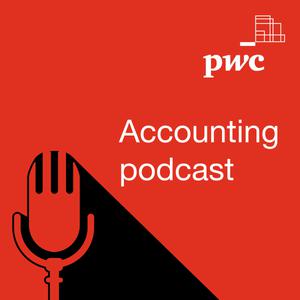 PwC's accounting podcast
PwC's accounting podcast
 TP Talks - PwC's Global Transfer Pricing podcast
TP Talks - PwC's Global Transfer Pricing podcast
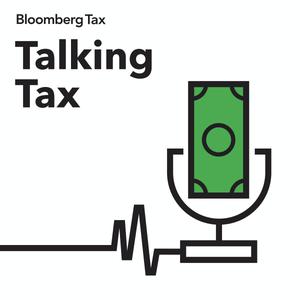 Talking Tax
Talking Tax
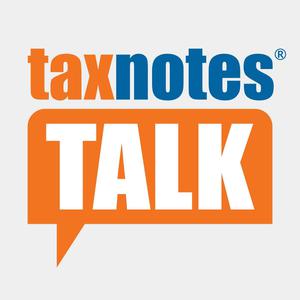 Tax Notes Talk
Tax Notes Talk
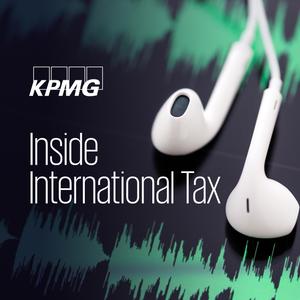 Inside International Tax
Inside International Tax
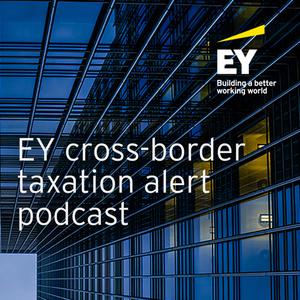 EY Cross-Border Taxation Alerts
EY Cross-Border Taxation Alerts